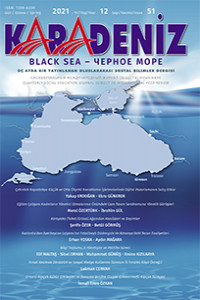DİLLER ARASI ETKİLEŞİM: ARAPÇA VE TÜRKÇE ÖRNEĞİ
INTERACTION BETWEEN LANGUAGES: THE CASE OF ARABIC AND TURKISH
Author(s): Luay Hatem YaqoobSubject(s): Language studies, Comparative Linguistics, Turkic languages
Published by: Kültür Ajans Tanıtım ve Organizasyon
Keywords: Linguistics; Linguistic Interaction; Arabic; Turkish; Similarities Between Languages;
Summary/Abstract: The interaction of languages is a natural phenomenon observed by the passing of long terms. Languages permeate each other when a language connects directly or indirectly with another language. Whether old or new, it is normal for all languages in the world to influence each other and be influenced by each other in the same way. Interactions and word transitions between languages are witnessed as a result of people living together. It is a statutory reality that languages change and influence each other as a result of developing various relationships between different communities, neighborly ties of peoples, ethnically and religiously impure structures. This research aims to question Turkish and dialects in general as well as to address the changes in them. In our three-chapter study, similar aspects between Turkish and Arabic were tried to be put forward. Chapter one mentions the emergence of Turkish and the periods in which it passed until it reached its present form. In the second chapter, the influence of Arabic in Turkish, the interaction and similarities between them are interrogated. The third chapter considers the most important issues and areas in which Turkish is influenced by Arabic. The study concluded that Turkish is influenced by Arabic. The most important factors in this context are that the majority of the Turkish people believe in the religion of Islam, and the holy book of Islam is the Quran in Arabic. In Ottoman Turkish, it is possible to see obvious traces of Arabic. It is understood that the Arabic influence is gradually decreasing compared to before with the Letter Revolution in 1928 and the subsequent language simplification movement. Despite this, Arabic remains the most influential foreign language on Turkish in terms of common words.
Journal: Karadeniz Uluslararası Bilimsel Dergi
- Issue Year: 2021
- Issue No: 51
- Page Range: 296-310
- Page Count: 15
- Language: Turkish

